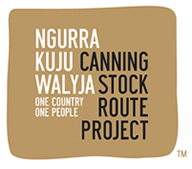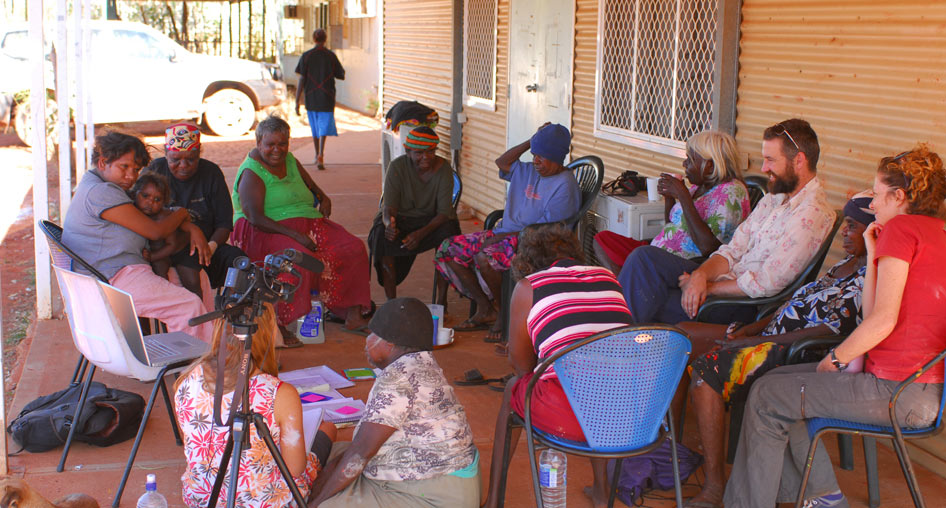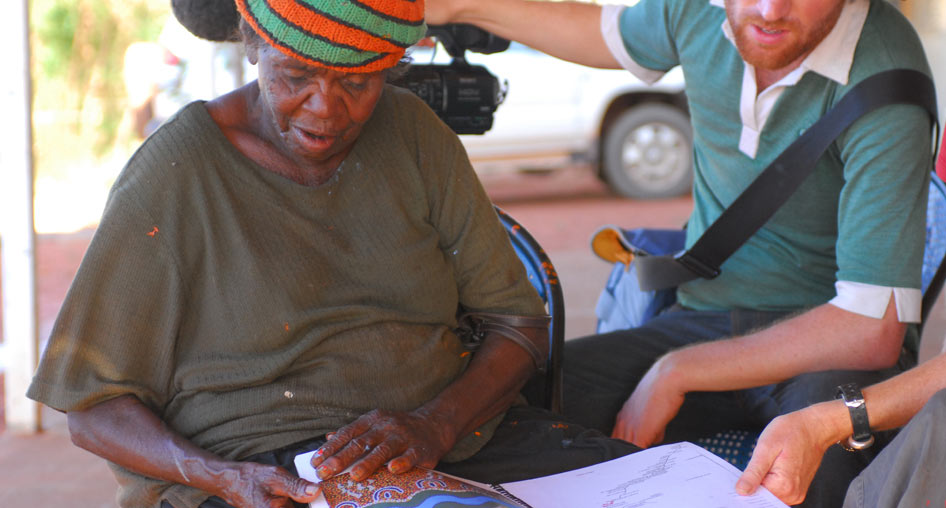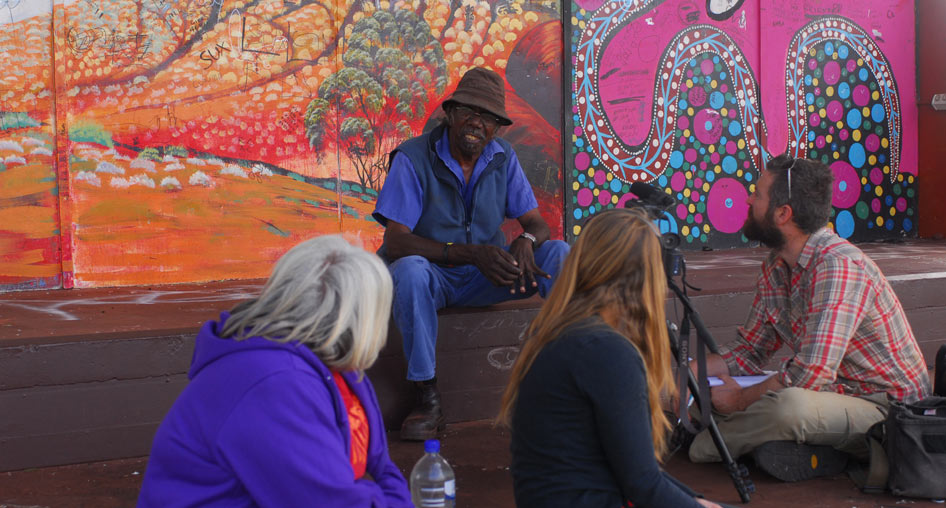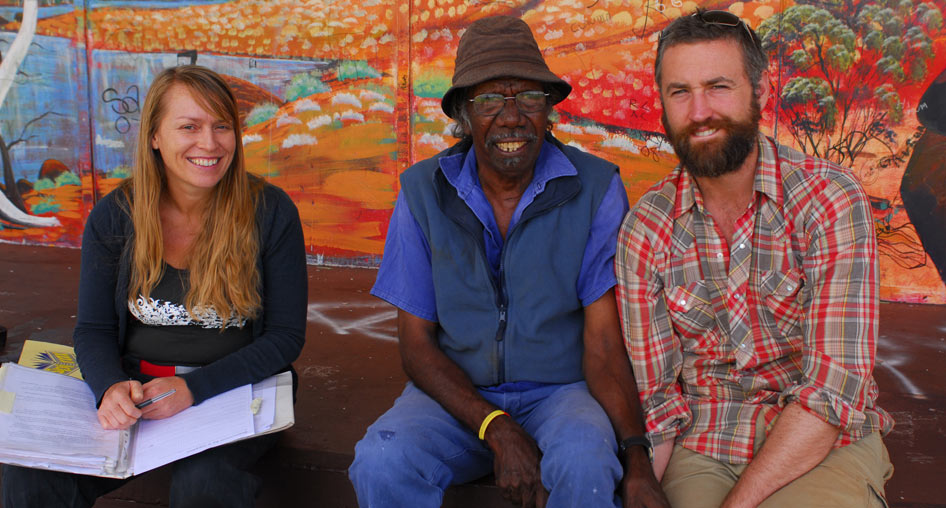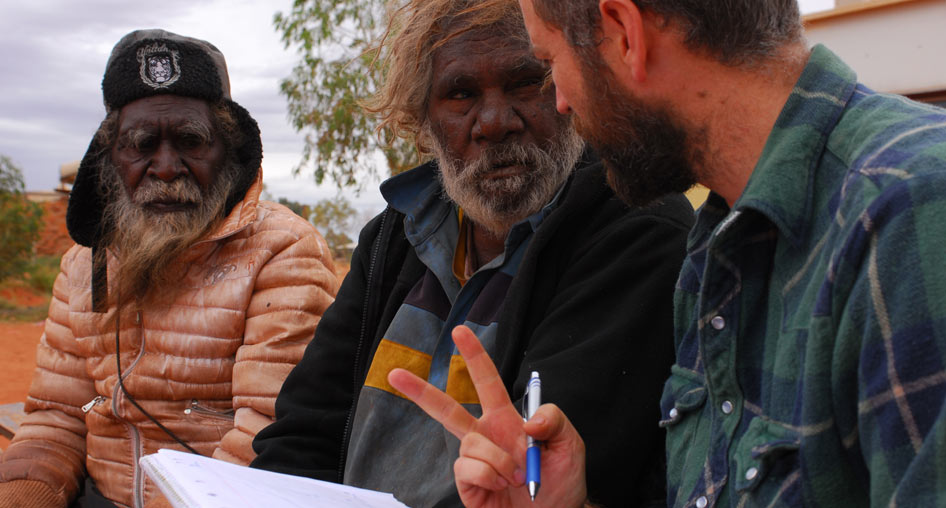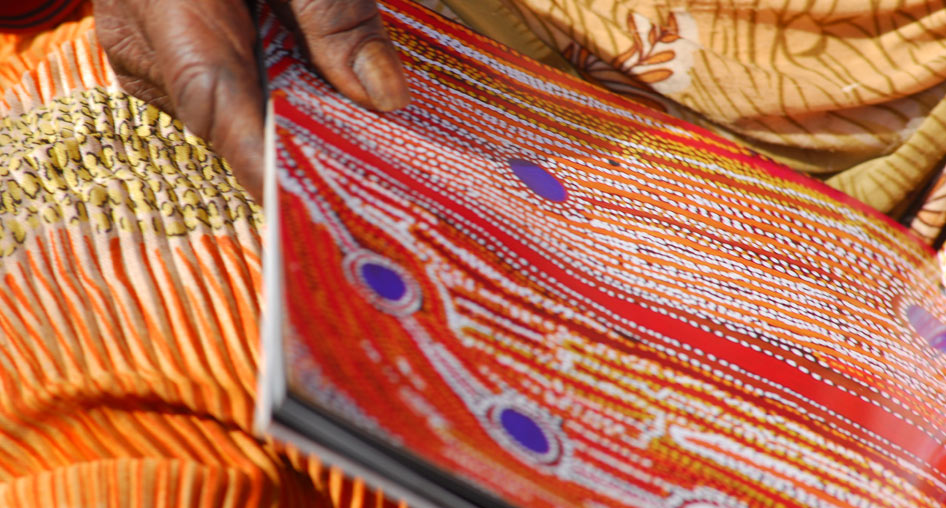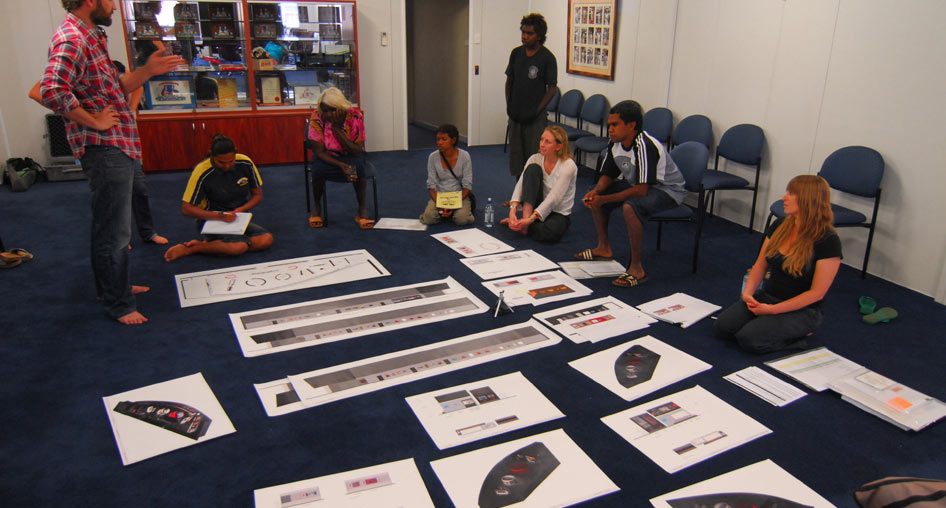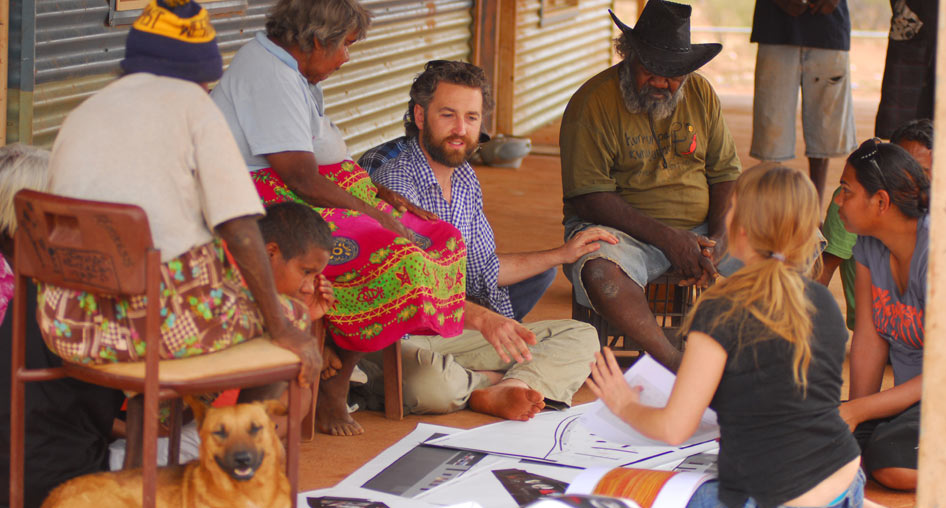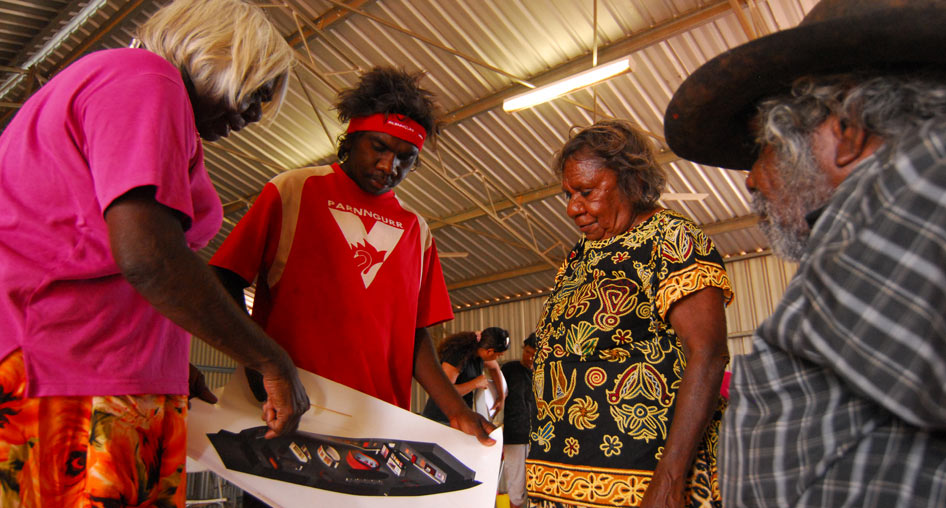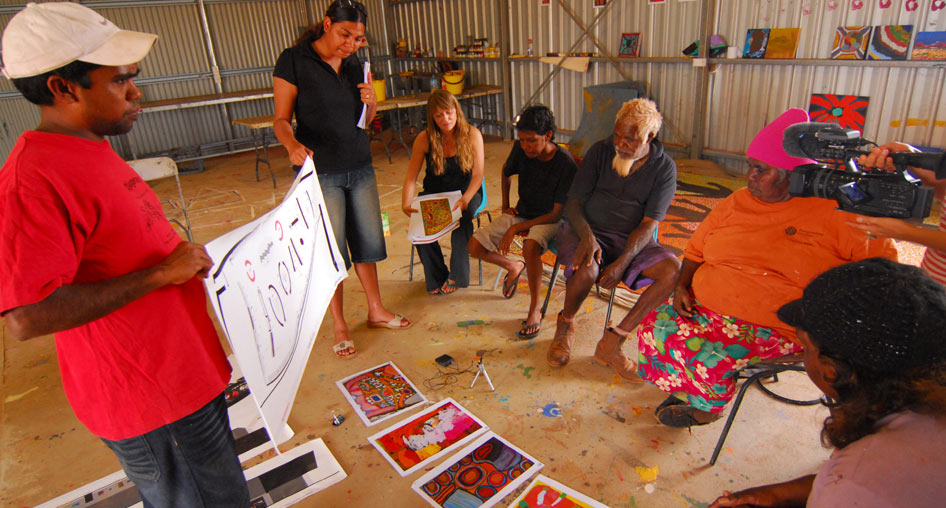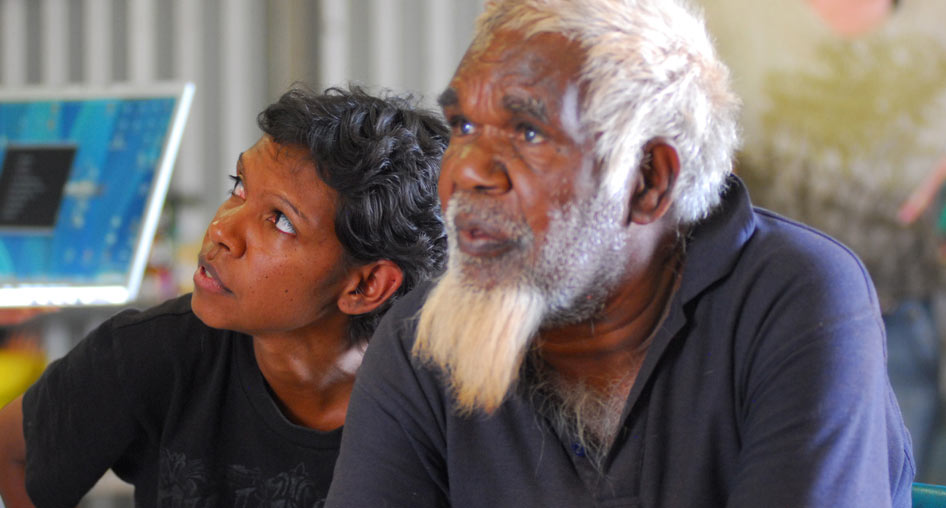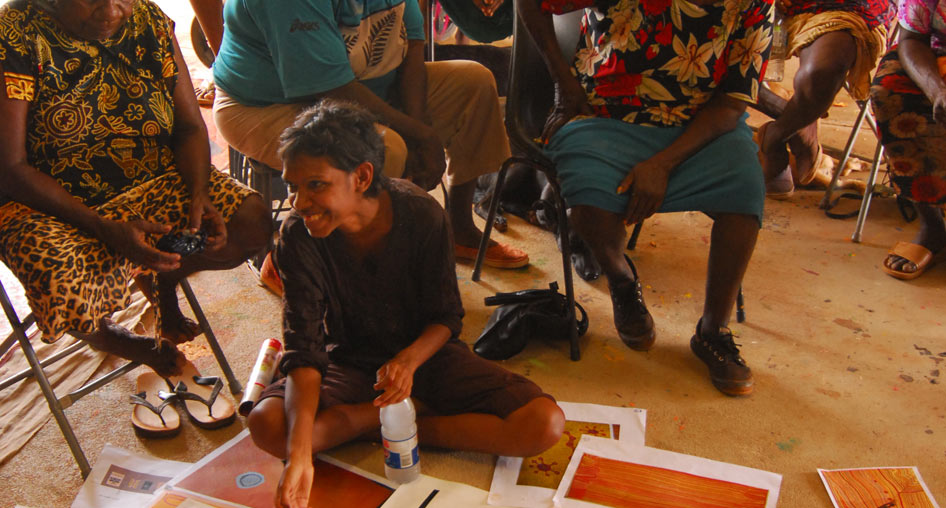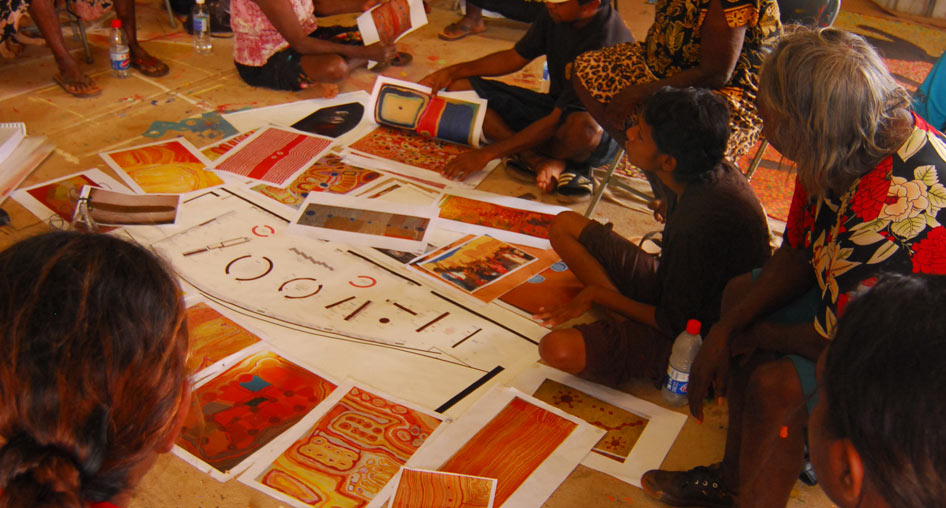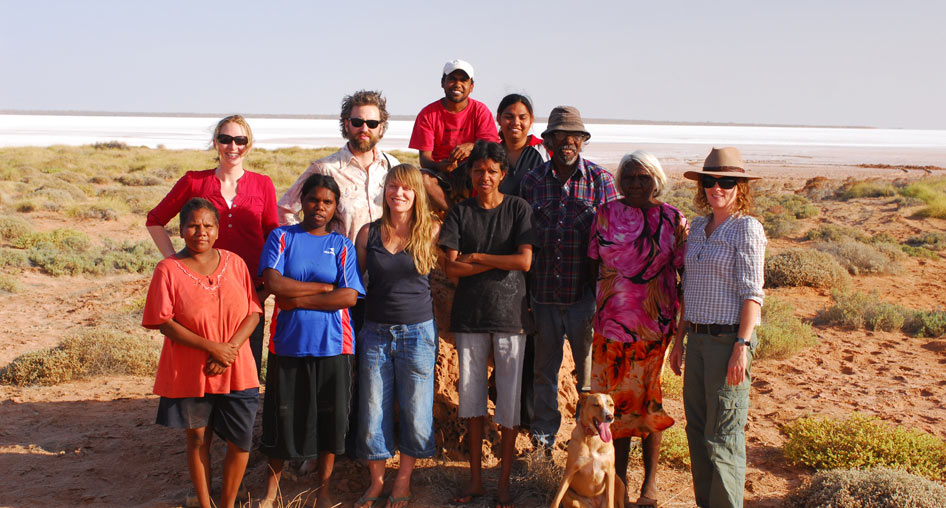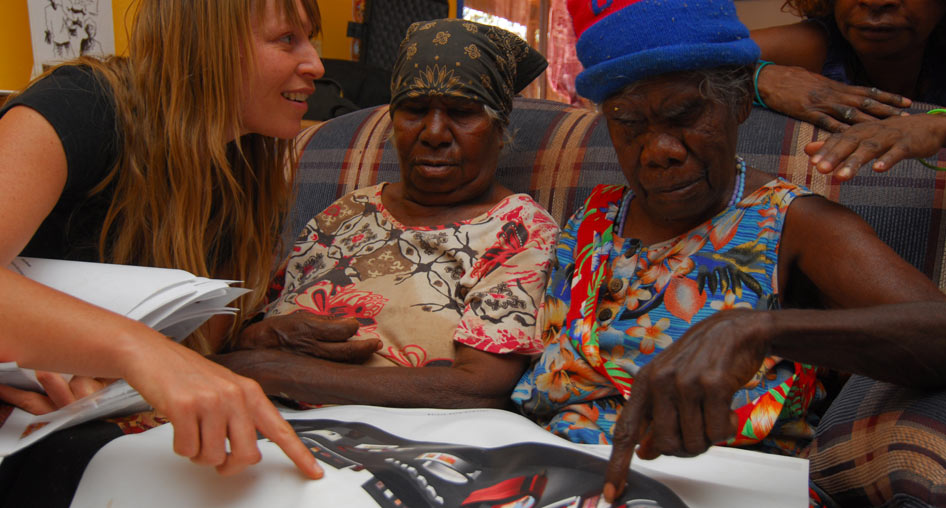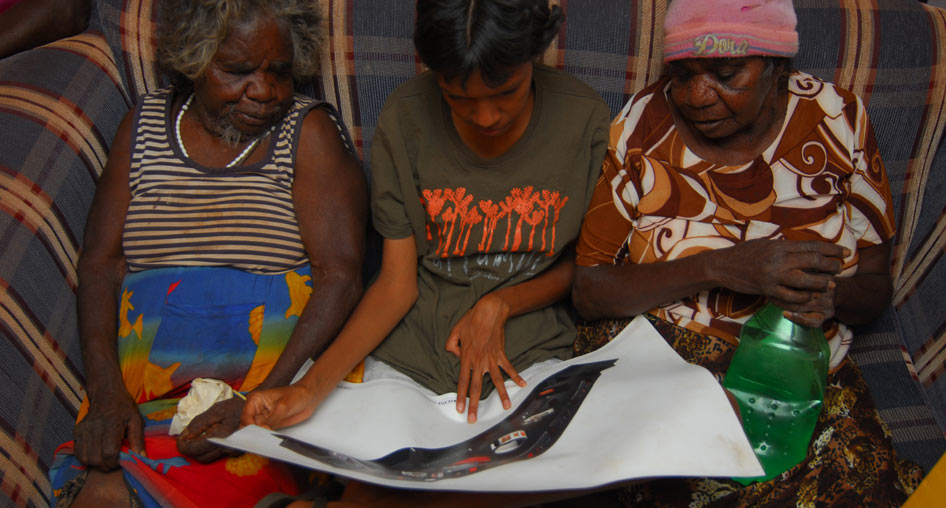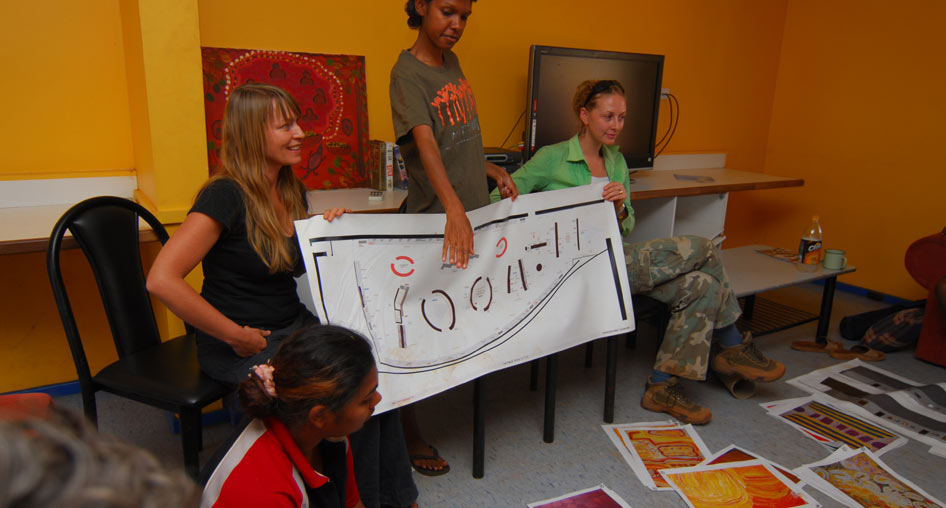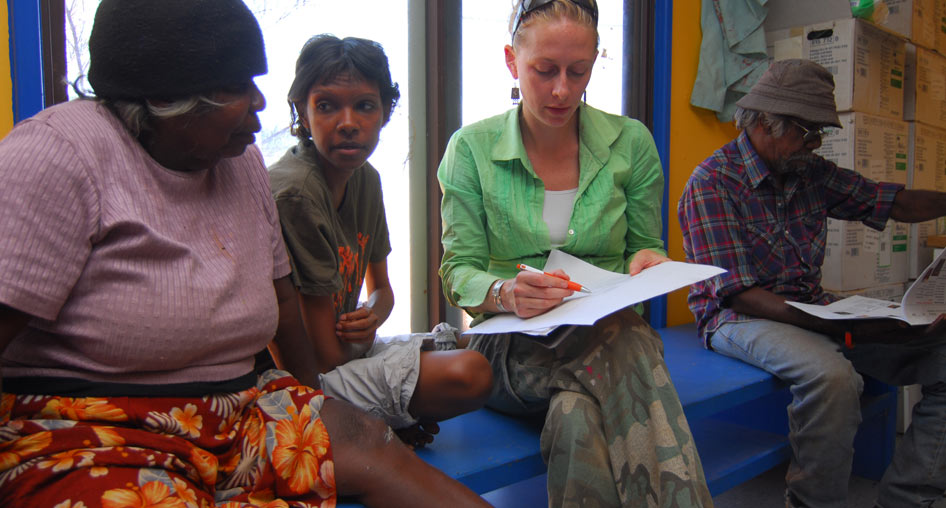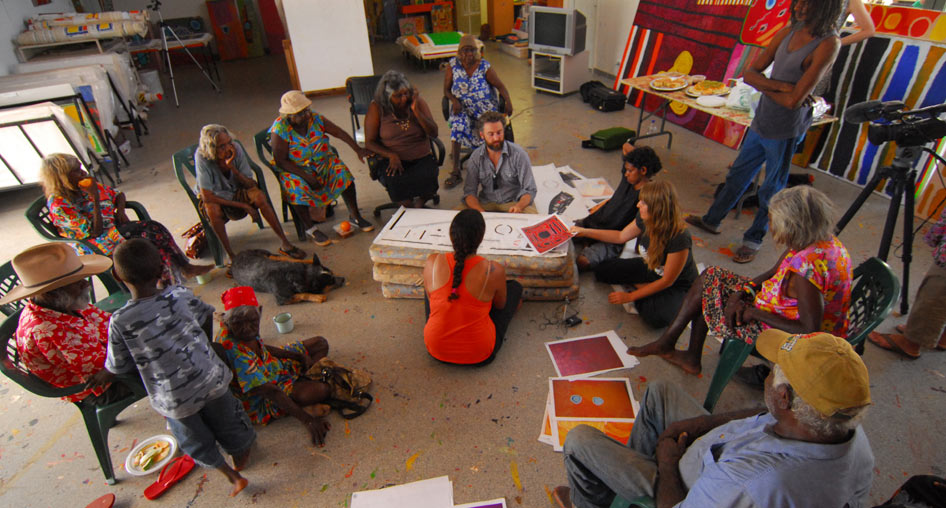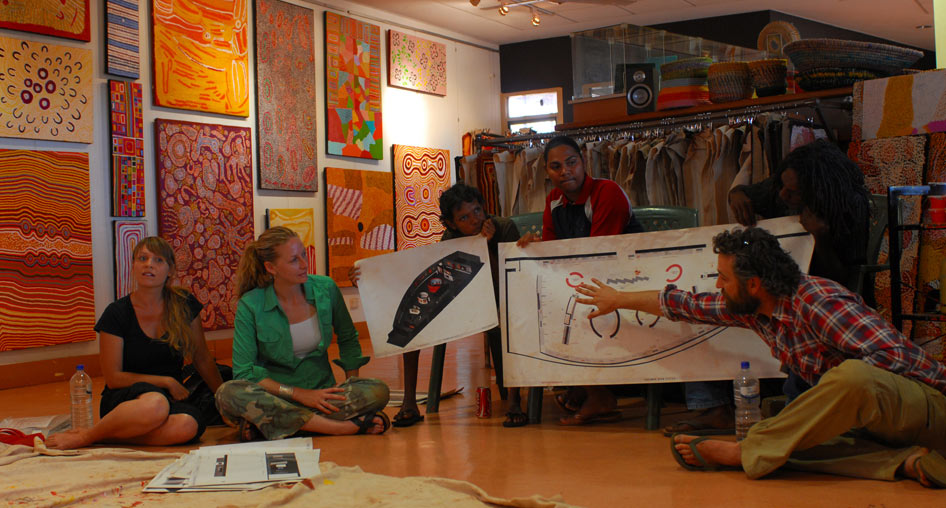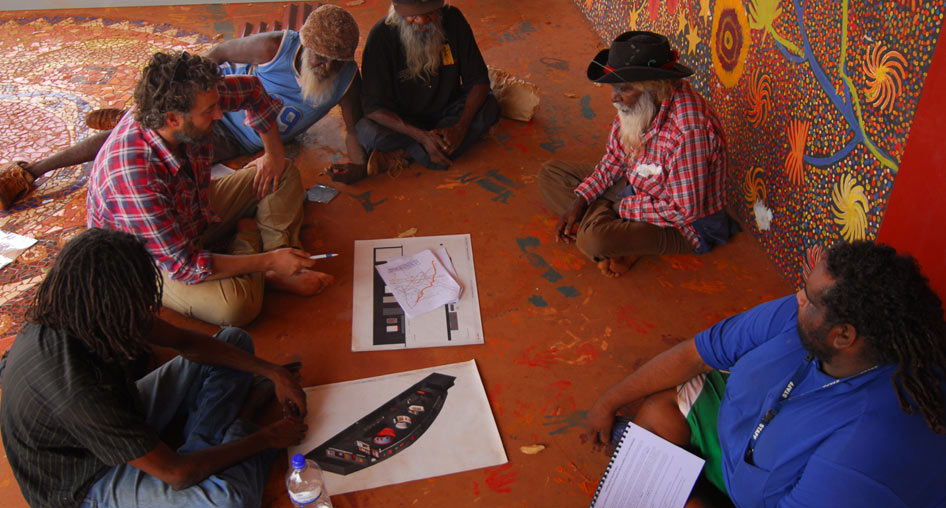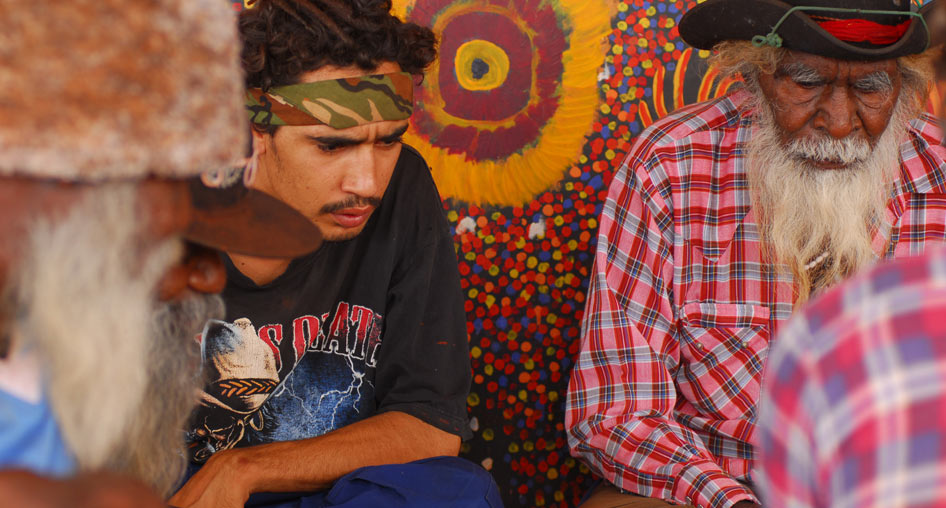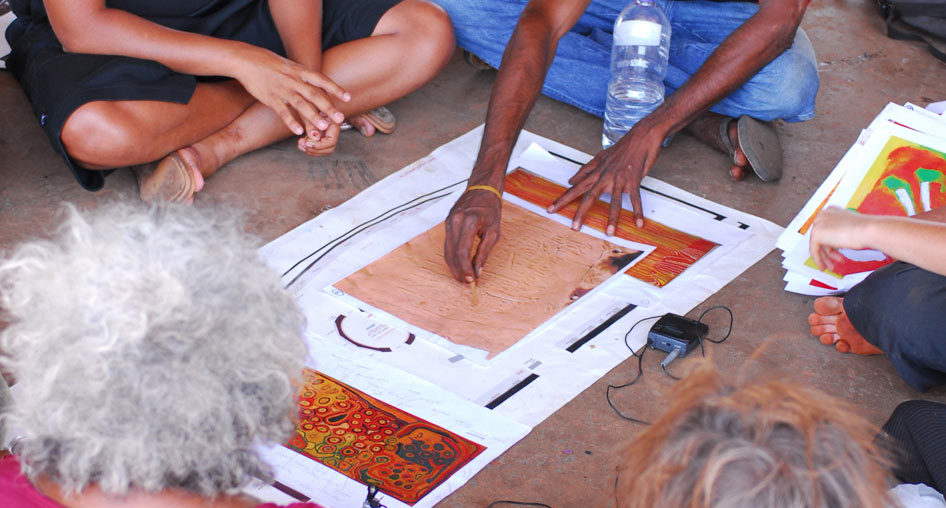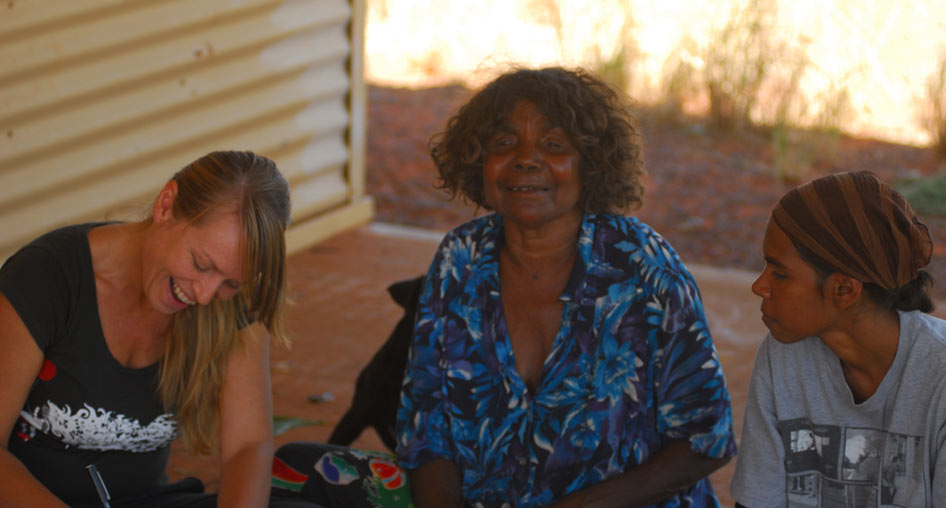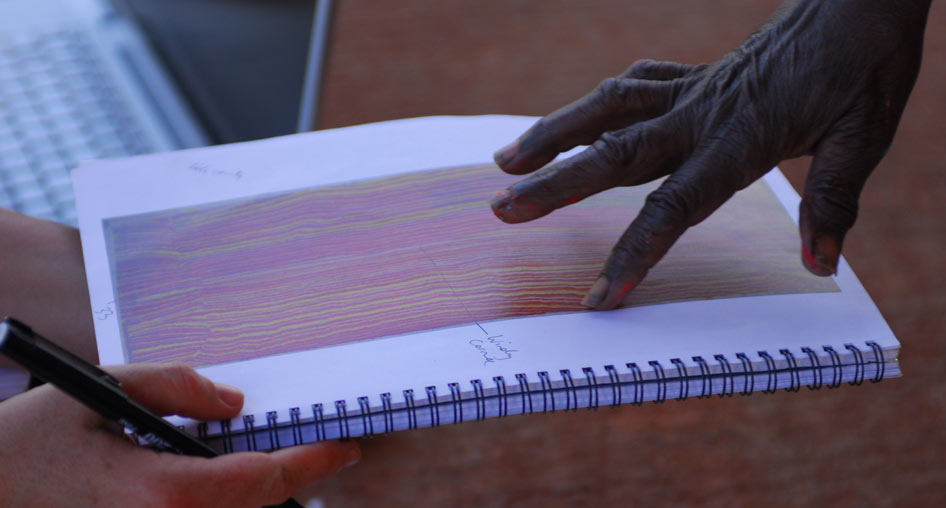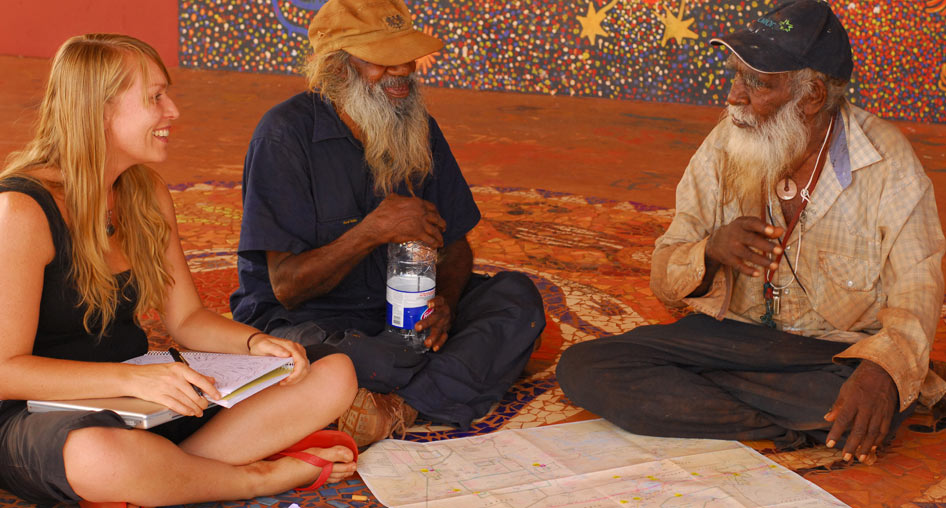Approval and Consent Process
The Canning Stock Route Project worked closely with Aboriginal translators and cultural advisors throughout the project to ensure that Indigenous Cultural Intellectual Property (ICIP) was handled appropriately and that cultural sensitivities and the needs of communities were carefully addressed. Oral histories were first translated into English from traditional languages and transcribed on paper by Aboriginal translators. The various story elements of each interview were identified and numbered on comprehensive permission forms, which allowed contributors to assess the suitability of each element for a range of purposes including exhibition, books, multimedia, online access, storage in public collections and community archives. When curators returned to communities with these detailed permission forms they were accompanied by one of the senior project translators and cultural advisors, Ngalangka Nola Taylor and Putuparri Tom Lawford, who would interpret and provide advice to elders, and direct non-Indigenous team members in relation to sensitive cultural issues.
Although logistically challenging, labour-intensive and exacting for translators and curators, the approvals process was one of the most rewarding phases of the collection’s development. The pleasure and sense of acknowledgement that contributors derived from seeing their stories being acknowledged within the nation’s history and highly valued within the permissions process was always affecting.
Extraordinary new information was often added in these sessions, and although some stories were deemed by contributors or family members to be unsuitable for public use, the vast majority were approved with immense pride. Often large groups would gather to listen to the stories being read out or retold again.
